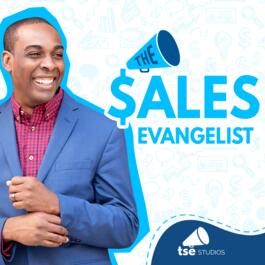
Ryan Levesque | How to "Warm Up" Your Prospects With Trust Before You Pitch
In order to succeed in business long-term, choose a market with room to grow, and consider these 5 things to look for when choosing your market. Ryan Levesque recently landed on Inc.’s list of 500 fastest growing companies, and his company just passed the $10 million mark for annual revenue. He admits that he has made a lot of mistakes along the way and learned a lot as well. Finding a niche Ryan said many business owners and entrepreneurs make the common mistake of following conventional wisdom in the early days of the venture. They focus on what they will sell or create rather than focusing on who they will serve. Who is your market? Who is your niche? He has engaged in more than 23 niche markets, from making jewelry out of Scrabble tiles to weight loss and satellite television. Through the process, he has learned the importance of focusing on people rather than things. He points to choosing the right market as the most important factor of all. You can be the most charistmatic salesperson with the best closer, but if you have chosen a bad market, none of that will matter. Wrong product and people I’ve personally made the mistake of trying to sell the wrong product to the wrong people. I discovered a product that I liked and I thought other people would like it, too. But it didn’t make money because it wasn’t a good fit. There wasn’t a market for it. Ryan outlines the indicators you should look for in his book, Choose. He said though, that writing a book invites communication from two different camps: those who love what they read and those who claim it didn’t work. He said it leaves you wondering whether you gave bad information. Niche markets In his first book, Ask, Ryan revealed the methodology he used to successfully enter niche markets. They figured out how to warm up prospects and how to determine what people want. It includes a specific set of questions designed to help you understand your audience at a deep emotional level so you can better sell and serve. In an online environment, you ask questions on your website so you can funnel people into different “buckets” based on their situations. Ryan focused on uncovering commonalities. For example, what did the people who didn’t succeed have in common? What were they doing wrong? He discovered that he didn’t teach people how he chose the 23 markets he engaged with. Of the millions of niche markets a business could engage with, what did these 23 have in common? He engaged in what he called the biggest research project of his life. He sought to figure out why the 23 markets had succeeded where others had not. Then he looked at his most successful clients and tried to figure out what separates the successful ones from the unsuccessful ones. He uncovered seven factor that will make or break your business’ success. The seven factors that Ryan uncovered are universal, foundational pieces that will help you find green markets, or those markets that are a “go” versus yellow which aren’t quite ready and red, which you should stay away from. Evergreen markets Consider the following study in contrasts on the topic of evergreen markets, which are relevant now and will still be relevant 20 years from now. Ryan engaged in the Scrabble tile jewelry market about the time Etsy was coming online. Jewelry combining Scrabble tiles and origami paper was extremely popular at the same time he and his family were living in Asia. They discovered a woman who was teaching people how to make the jewelry on Etsy and making about $10,000 a month selling the tutorials. There was no overhead, and her homemade version of a tutorial was selling like crazy. Ryan and his wife decided to make a go of it, so she learned to make the jewelry while he worked on selling it. They built a better mousetrap, and before they knew it they were picking up steam. Before they knew it they were making $10,000 a month. The ending wasn’t a happy one. The jewelry was...
From "The Sales Evangelist"




Comments
Add comment Feedback